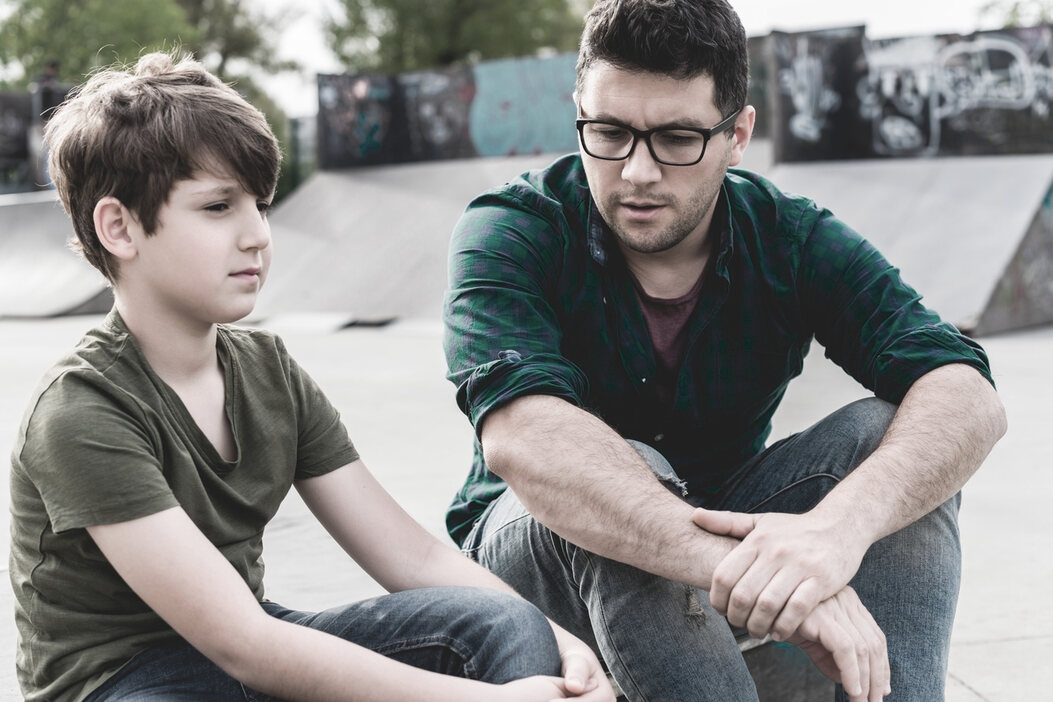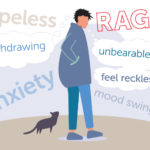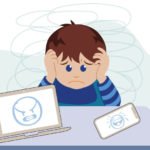Behavioral health: What parents should know

Even before a worldwide pandemic uprooted life as we knew it, our children have been grappling with an unprecedented health crisis. In the span of 10 years, emergency rooms have seen a 60 percent increase in mental-health-related visits in patients under age 18.
COVID-19’s disruption of routines and social outlets has only worsened this problem. Parents who previously may not have had specific concerns about their children’s emotional well-being now worry about the effects of the past year’s isolation and general uncertainty.
But this recent spotlight on our proactively managing kids’ emotional and psychological well-being may be a good thing.
How?
Here is what experts from Boston Children’s Primary Care Alliance want you to know:
“We call a doctor when our children feel discomfort in their stomach, chest, or other parts of their body,” says Brooks Gleason, a clinical social worker at Pediatric Associates of Hampden County. “But often we don’t seek help for things like mood swings, long periods of sadness, anger, or other extreme emotions. Addressing your child’s behavioral and emotional well-being is just as important as managing their physical health.”
This means noticing how your child expresses their fears and feelings to empower them to identify and control their emotions, solve problems, and practice healthy coping skills — abilities that will benefit them throughout their life. To do this effectively though, it’s important to understand what behavioral health is and what it isn’t.
Behavioral health is not another term for mental health
“Many people think of behavioral health and mental health as the same thing, but there are differences between them,” says Nicole Santos, a licensed mental health counselor at Pediatric Associates of Hampden County.
While behavioral health is one category of mental health, not all mental health disorders are behavioral issues. Some are caused by genetics or disturbances in brain chemistry. These can include:
- depression
- bipolar disorder
- generalized anxiety disorder
On the other hand, behavioral health disorders manifest as behaviors that negatively impact your child’s mental or physical health. Examples include:
- aggression and irritability
- defiance
- drug use
- disordered eating
- inappropriate sexual behavior
- poor attention
- self-harm
Needing behavioral health services does not mean you’ve failed as a parent
It can be hard to admit that our children need more help than we can provide on our own, often because many of us see asking for help as a sign of weakness. But when it comes to raising emotionally strong children, Gleason says, “seeking behavioral health support is not a reflection of bad parenting. In fact, it can be a sign of being ‘tuned in’ with your child and knowing how to meet their unspoken needs.”
Her tips: “Consider what feeling your child’s behavior is expressing. And, underlying that feeling, what is the need?” This allows you to see a situation from your child’s perspective and empathetically address the behavior.”
Having behavioral health concerns doesn’t mean your child isn’t ‘normal’
Santos says one of the most common questions she hears from families is, “is this normal?” The short answer is, probably yes.
“Childhood is full of rapid change,” she adds. “As kids move through adolescence, they face several developmental changes, including physical, social, and cognitive. Given so much change, it’s no surprise their emotional well-being is affected.”
Santos and Gleason agree that by being mindful of the changes and challenges that come with young adulthood, parents can help their children recognize internal signs of distress, such as anxiety or changes in sleep or eating patterns, before they become overwhelming.
Behavioral health is a family effort
Behavioral health services can help you and your child find the underlying cause of their emotional distress and equip you with strategies to better cope with everyday stress and practice healthy habits. But at the end of the day, no one knows your child better than you do, which is what makes you the most qualified to help them navigate their behavioral and emotional well-being.
“There are many small things you and your child can do every day to contribute to good behavioral health,” says Santos. “Simply noticing your breath can help you feel more relaxed. Practicing skills as a family helps everyone.”
Mindfulness also helps families take stock of different thoughts and emotions. “Recognizing that difficult experiences will pass is often, in and of itself, a calming strategy,” Gleason adds.
Finally, kids and parents alike benefit from regularly discussing their emotional well-being and communicating their worries. Children — even from a very young age — should be talking about their feelings every day.
Learn more about behavioral health services by contacting your Boston Children’s Primary Care Alliance provider.
Related Posts :
-

COVID and suicidal thoughts: Help for families
Earlier this month, the U.S. Centers for Disease Control and Prevention (CDC) released stark new figures on mental health ...
-

Cyberbullying in the age of COVID-19: How to protect your kids
Now that so many classrooms across the country have moved totally or partially online, kids of all ages are spending ...
-

Dealing with feelings of grief in the time of coronavirus
As the COVID-19 outbreak moves into another month, do you find yourself feeling angry? Helpless? Sad? Lost? Disappointed? Accepting? Or ...
-

Anxiety in kids during COVID-19: What parents should know
Some kids hide in their rooms. Others turn their cameras off during remote learning and don’t want to talk ...





